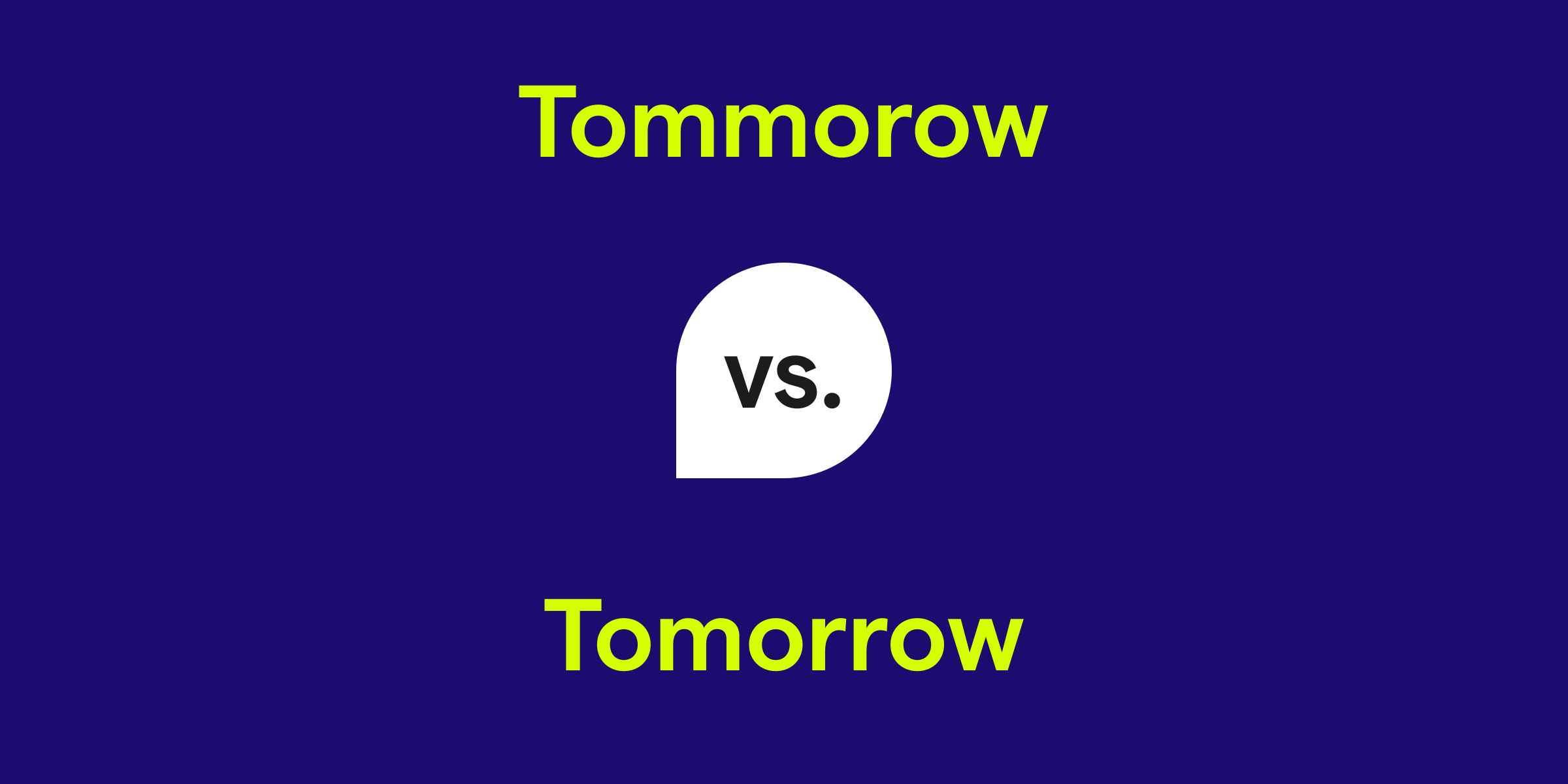Tommorow vs. Tomorrow: What's the Difference?
The word tomorrow is the correct spelling for the term that refers to the day after today. It is widely used in various contexts, from planning future events to making promises about upcoming actions. Alternatively, tommorow is a common misspelling of the same word and is considered incorrect in Standard English. The correct form, tomorrow, should always be used in writing and speech to convey professionalism and proper grammar.

How do you use the word tomorrow in a sentence?
The word tomorrow is used to indicate the day following the current one. It can function as an adverb or a noun within a sentence, referring to future time. It's essential to use this term when discussing plans, expectations, or events that are anticipated to occur the next day.
Examples of tomorrow in a sentence
- We have a meeting scheduled for tomorrow at nine.
- The weather forecast predicts rain tomorrow.
- I'll finish the report by tomorrow evening.
How do you use the word tommorow in a sentence?
The word tommorow is an incorrect spelling and should not be used in formal writing or speech. Instead, use the correct spelling tomorrow to avoid errors and misunderstandings. It's important to proofread for common misspellings like this one to maintain credibility in communication.
Examples of tommorow in a sentence
- Incorrect: I plan on starting my diet tommorow.
- Incorrect: The festival starts tommorow at noon.
- Incorrect: Can we reschedule our meeting to tommorow?
Tomorrow and tommorow definition, parts of speech, and pronunciation
Tomorrow definition:
Tomorrow (noun/adverb): The day after the present day or a future point of time.
Tomorrow parts of speech:
Tomorrow pronunciation:
Pronounced as /təˈmɒr.oʊ/ or /təˈmɔːrəʊ/.
Tommorow definition:
Tommorow: A misspelled version of tomorrow, carrying the same intended meaning but incorrect and not accepted in standard usage.
Tommorow parts of speech:
Tommorow pronunciation:
As it is a misspelling, it does not have an official pronunciation and should be corrected to 'tomorrow'.
Tomorrow (noun/adverb): The day after the present day or a future point of time.
Tomorrow parts of speech:
- As an adverb: She said she'd visit tomorrow.
- As a noun: Tomorrow is another day.
Tomorrow pronunciation:
Pronounced as /təˈmɒr.oʊ/ or /təˈmɔːrəʊ/.
Tommorow definition:
Tommorow: A misspelled version of tomorrow, carrying the same intended meaning but incorrect and not accepted in standard usage.
Tommorow parts of speech:
- Cannot be correctly used as any part of speech due to its incorrect spelling.
Tommorow pronunciation:
As it is a misspelling, it does not have an official pronunciation and should be corrected to 'tomorrow'.
Tomorrow vs. tommorow in a nutshell
The difference between tomorrow and tommorow is fundamentally one of spelling correctness. Tomorrow is the accurate spelling, used to reference the day after today, while tommorow is a typographical error that should be avoided. Ensuring the proper use of tomorrow in communication is a simple yet vital part of presenting clear and professional language. Individuals should take care to use the correct spelling to convey their message effectively and uphold their credibility.
Get AI Writing Assistance Wherever You Type
Make sure your vocabulary is on point and every punctuation mark is in the right place, no matter where you’re working. Grammarly works across more than 1 million websites and apps so you can improve your writing without copying, pasting, or breaking focus.

More Commonly Confused Words
Interest piqued? Pore (not pour) over other commonly confused words to help your writing reach peak (not peek) performance.